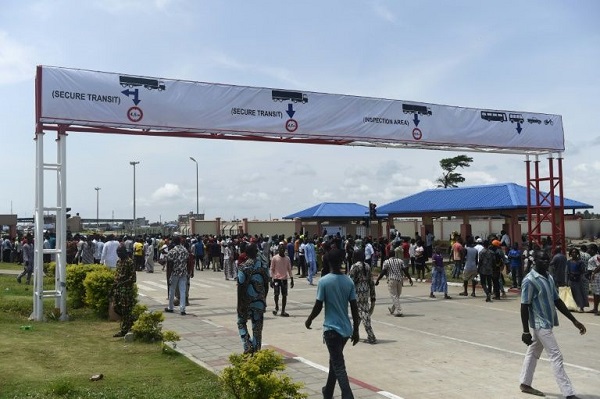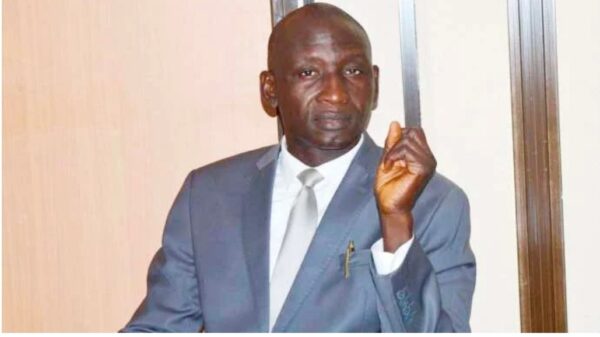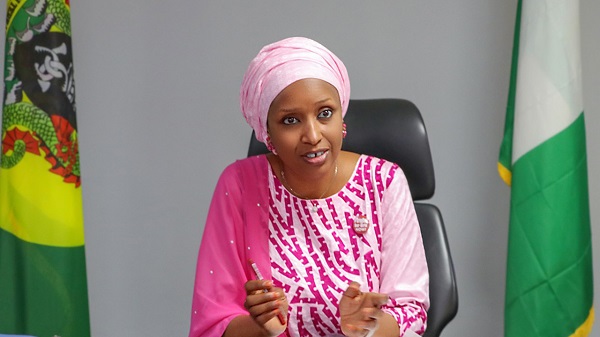Nigeria Lacks Structures For Optimal Cross-Border Trade – WARTU

· Inaccessible ports an anticlimax to closed borders – ANLCA
· Customs should prioritize information gathering, not revenue
By Kenneth Jukpor
While Nigeria has blamed countries at the land borders for non-compliance to trade protocols and treaties resulting to the current land border closure, logistics experts have posited that Nigeria lacks the requisite structures for efficient cross-border trade.
The experts posited that Nigeria’s biggest challenge in cross-border trade has been the absence of tracking systems to monitor transit goods and lack of data on the characteristics of goods being conveyed along its trade corridors.
Noting that the nation would continue to be at the losing end until it developed physical infrastructure as well as policy structures that support data capturing and tracking, the veterans urged the federal government to swiftly turn its attention to addressing this rather than blaming neighbouring countries for non-provision of details of transit goods.
Since the nation’s borderposts have become notorious for lack of scanners like the seaports, 100% physical examination is carried out at the posts creating a leeway for corruption, smuggling and other illicit practices.
Although border countries like Benin Republic had been fingered for exploiting and flouting regional and international trade treaties and protocols to the detriment of Nigeria’s economy, it appears Nigeria has neglected the crucial role it could have played to forestall such occurrence.
Speaking to MMS Plus on this at a recent conference organized to chart a headway following the closure of land borders, the Public Relations Officer (PRO) of West African Road Transport Union (WARTU) Alhaji Salami Nasiru said the problem wasn’t solely the non-compliance of neighbouring countries as he blamed Nigerian government for the neglect of required structures that facilitate cross-border trade.
“In Burkinafaso, Ghana, Cameroon, you find that the Customs collect information on goods on transit. Nigeria shouldn’t expect other countries to provide data of goods with respect to safety and security. I have taken the Deputy Controller in charge of Information Communication Technology at Seme to Burkinafaso to see how the Customs there operate. They also explained to him how the go about information gathering. Burkina Customs pay to track cargoes because they want to monitor goods in transit through their corridors. You can’t blame other countries for this problem of security because you didn’t put the right structures in place” Alhaji Nasiru explained.
Nasiru also admonished Nigeria and other West African nations to take a cue from East Africa who have prioritized their trade agreements and utilized efficient tracking systems to monitor cargoes that transit along the corridor.
Meanwhile, following projections that the closure of the borders which has been extended to the first quarter of 2020 would herald an upturn in cargo volumes at seaports, port stakeholders have lampooned the ill-preparedness of the nation’s seaports to accommodate increased cargo volumes.
Also speaking at the conference organized by Nigerian Shippers’ Council (NSC), the Vice President of the Association of Nigeria Licensed Customs Agents (ANLCA) Dr. Kayode Farinto warned that the nation’s seaports weren’t ready for the increasing cargo traffic following the border closure.
Farinto lamented that the nation’s biggest ports in Lagos remain inaccessible, a situation he described as an anticlimax to the nation’s decision to close the land borders.
“The level of importation would definitely increase and there are signs that it is already increasing following the border closure. The yuletide season is also around the corner which means more imports. The truck call-up system at the ports has failed and the roads are inaccessible. We have closed the land borders yet our seaports are inaccessible” Farinto queried.
He also stressed the need for the Nigeria Customs Service to streamline its operations for speed and efficiency and stop the numerous interceptions along the port corridor which inhibits trade.
In his submission, the Chairman, Nigerian Ports Consultative Council, Otunba Kunle Folarin commended the federal government for the decision to close the borders noting that the move addressed the problem of insecurity, wealth creation and employment.
Otunba observed that it was unfortunate that Nigeria was responsible for over 60% of West Africa’s trade yet its citizens aren’t benefitting from the enormous employment opportunities that should arise from such status.
He called for a strategic action group to create a tactical plan for compliance to trade treaties and protocols by neighbouring nations; while he admonished the government to leave the borders closed until neighbouring countries were compliant to regional treaties they signed.
“Let there be gridlock at Nigerian ports if the volume of cargoes is so much for our freight forwarders to handle. That would guarantee jobs, wealth creation and economic development”, he opined while harping on the need for strategic alliance with neighbouring countries.
Trade experts have posited that the border closure should have required earlier consultation particularly with genuine importers and exporters, as hundreds of trucks conveying made-in-Nigeria goods, including popular brands like Dangote, Unilever, Cadbury, among others have been trapped at various border-posts, with hundreds of millions of naira wasting away as Nigerian manufacturers groan in anguish following the decision.
It is unfortunate that despite the genuine reasons for the border closure, scores of traders, importers and freight agents have died from the pangs of this development with colossal losses for those who export or import a large chunk of legitimate goods via land borders.
Stressing the effects of this development, a former Coordinator, Seme border, National Council of Managing Directors of Licensed Customs Agents (NCMDLCA), Chief Ogbonnaya Gordon said; “Many importers and agents have lost their lives as a result of borrowed monies that they used to import legitimate goods which have been stuck at the borders for months”
Speaking further, he said; “I can tell you authoritatively that I know up to six importers and not less than five agents who have died following this border closure. Importers are dying because of borrowed money incurring enormous interests. Some have lost valuable assets because of this development. Our appeal is that the border should be reopened for a month or two months to enable this category of individuals conclude their legitimate trade. Afterwards, the government could close the border forever if it wants to”
“Imagine the economic and psychological pangs on an importer who has been compliant to trade rules and had ten containers stuck. These goods aren’t contraband, they have been coming in prior to the border closure and Customs duty has always been paid. If these containers cost upto N100million or N200million, you can imagine the shock. Not everyone has the capacity to absorb such shock, especially those trading with borrowed funds” Ogbonnaya added.
The freight forwarder agreed that the reasons which led to the border closure and the federal government’s prerequisite for the re-opening were genuine. However, he couldn’t provide names of the alleged dead people and circumstances leading to their deaths.
Recall that pleas from the Manufacturers Association of Nigeria (MAN) on clarification from the federal government on the indefinite closure of the land borders, have gone unanswered whilst genuine importers and exporters continue to groan in hardship.
Speaking on the prolonged border closure, MAN President, Engr. Mansur Ahmed lamented that manufacturers involved in cross border trade to import raw materials as well as export have been handicapped by the development.
“There should have been consultation particularly with genuine importers and exporters. People should have been given some time to prepare for this. We must recognize that closing the border permanently isn’t a solution especially with the African Continental Free Trade Agreement (AfCFTA). If the intention was the short period of time while the government explores other ways to improve the control of the border that would have been understandable” he said.
While he stressed that manufacturers need clarification on how long the border closure would last, he also demanded that the government provide measures to alleviate the pains of the users of the borders, especially those who have had their business hampered by the action.
Looking into the era of post border-closure, the Executive Secretary of Nigerian Shippers’ Council (NSC) Barr. Hassan Bello who hosted the conference agreed with Alhaji Nasiru that lack of manifest made it difficult for Customs to capture details of the transit cargoes.
“Manifests ought to be transferred before the goods arrive. That is why NSC has always emphasized the use of Advanced Cargo Tracking System. CTN not only allows for smoother transition but also captures the data along the trade corridor” Bello said.
Bello noted that there was a connection between the border closure and the cargo traffic at the seaports, stressing that NSC has been discussing with the government on the issue of demurrage as a result of the congestion.
“The congestion means more tariffs; we would be slammed with congestion charges among others and our ports wouldn’t be competitive. The issue of infrastructure and security are very critical whereas the issue of international trade is also critical” he said.
He lamented that the 23million metric tonnes Nigerian ports handled in the 1970’s had increased to over 84million metric tonnes yet the same port infrastructure is still utilized.
“We have 84million metric tonnes and we want to do 100% physical examination for each container. It is painstaking, tedious and primitive. During an interaction with APMT recently, they revealed that they have more 90% of their space occupied and we expect more cargoes by the end of the year. We are going to suggest certain actions on the issue of demurrage and rail. However, this is everybody’s responsibility. The freight forwarder, shippers, terminal operators, truckers, among others, have enormous responsibility to ensure seamless operations”
“I assure you that we are going to look at the issues and form a strategic group because Nigeria is in the critical stage. We must support with the right behavior to ensure that the nation’s economy grows and we get the fair share in international trade. Nigeria isn’t just the big brother in Africa, it is also the struggling brother” Bello added.
Meanwhile, speaking on behalf of Customs at the conference, the Deputy Controller, Revenue at Seme, DC Bello Mohammed Jibo lamented that Benin Republic never adhere to transit trade procedures.
“Transit goods ought to get to Nigeria in the original form as it landed Benin. However, what happens is that they transload the content of the containers into trucks before bringing it into Nigeria. Sometime ago they had a park to Atlas park and containers were escorted by Benin Customs and handed over to Nigerian Customs at Atlas park.”
“It was when the joint border-post was reopened that we decided that proper procedures must be adhered to as goods must be carried by one Customs administration and handed to the other Customs. Today, that is what they are doing. NCS is saying that anything coming into Nigeria must get to the country in the original state and escorted by their Customs officers” DC Jibo said.
He also observed that Nigerian importers were levied twice for these goods as duties are collected by Benin Republic and Nigeria Customs. “It amounts to double charges. We don’t know why this continues to happen despite the fact that we have sensitized our importers” he said.
On the issue of corruption, the Customs boss said, “I want to stress that if an importer is compliant there is no way he can be coaxed into giving bribes. No agency or officer would be able to extort an importer who has been compliant”







